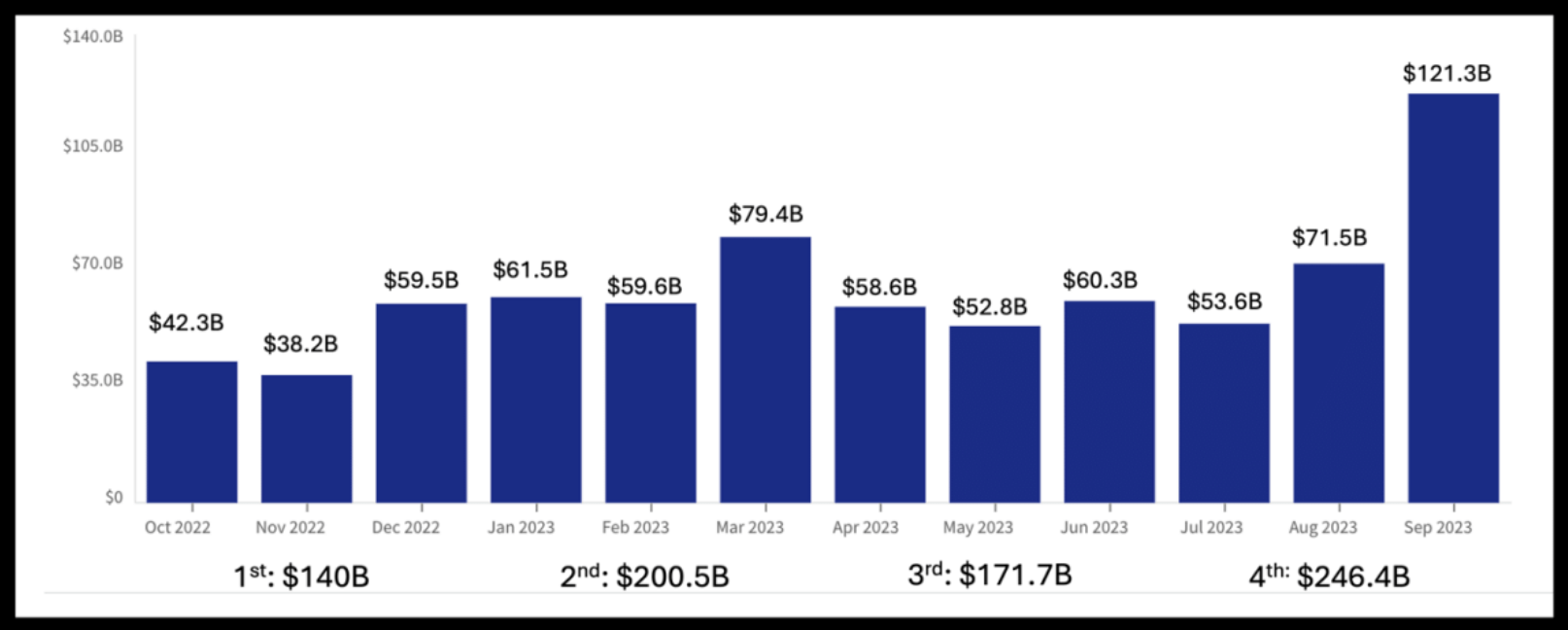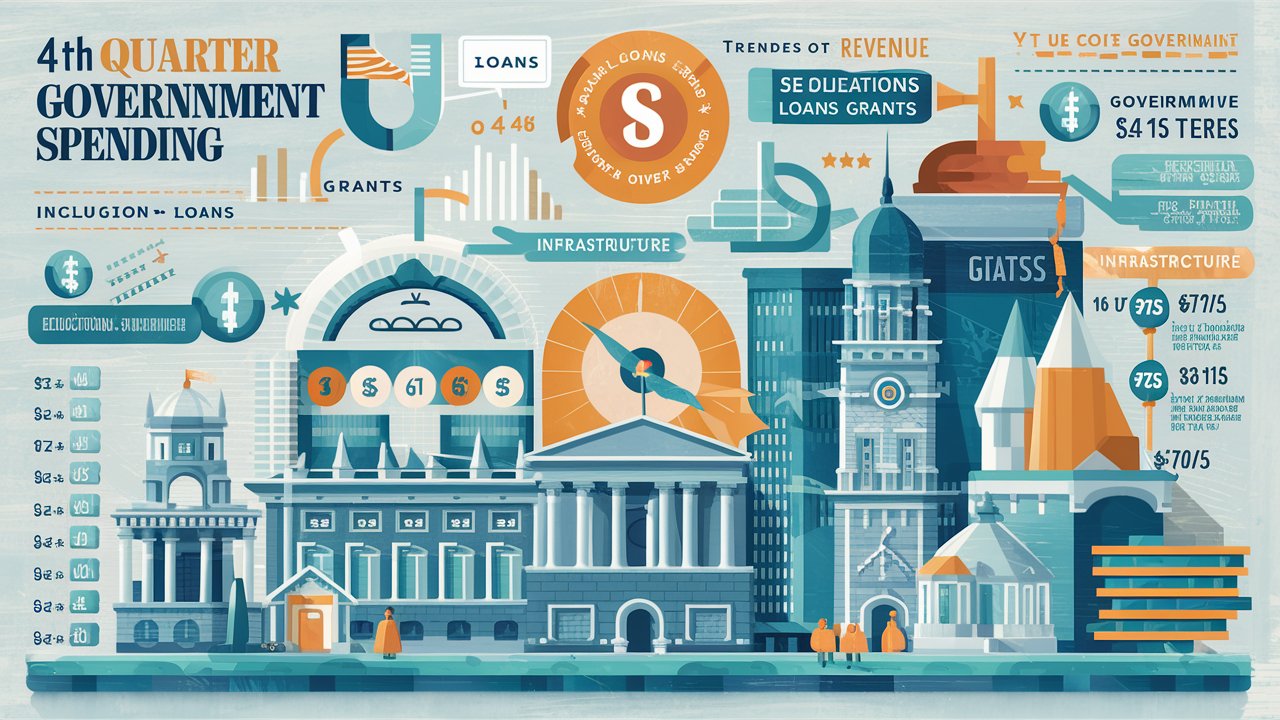The federal fiscal year begins on October 1st and ends on September 30th. The fourth quarter spans July, August, and September.
During fiscal year 2023, $758.6 billion was awarded to businesses, including federal contracts, with $246.4 billion occurring in the fourth quarter. This represents 32.4% of all spending. Ideally, each quarter should account for 25% of the annual spending. However, the fourth quarter presents the greatest opportunity to government contracts. The question is, are you ready to take advantage of the fourth quarter and secure your share of this spending?
The government market is a vast and complex landscape, offering lucrative opportunities for
businesses of all sizes. However, winning government contracts is not as straightforward as
submitting a proposal and hoping for the best.
The Defense Department is taking full advantage of artificial intelligence (AI) to enhance the federal acquisition process. The Chief Digital and AI Office (CDAO) at the DoD has developed a prototype AI tool, called Acqbot, as part of its Tradewind initiative.
Relief for DoD contractors due to inflation may be on the way. The proposed National Defense Authorization Act (NDAA) for 2023, which is Congress' annual budget for the Department of Defense (DoD), includes a provision that would grant the DoD more discretion to allow inflation relief for DoD contractors. The NDAA would amend 50 U.S.C. § 1431 to give the DoD more discretion in allowing adjustments to contracts to account for inflation, although this allowance would only be temporary, lasting from when the NDAA is signed by the President until December 31, 2023.
In the realm of government contracting, goal setting is not just a strategic advantage—it's a necessity. Whether you're navigating federal procurement or bidding on local city contracts, establishing clear, achievable goals is crucial for success. This article explores why goal setting is so vital in government contracting and the broader business landscape, covering regulations, reliability, and the potential pitfalls of failing to meet commitments.
You have decided government contracting will be one of your revenue streams. That is a great choice… if you can achieve sustainability. Many companies win a few contracts but never figure out how to win contracts consistently and, more importantly, profitably.
Are you currently working with the government or considering joining the ranks of successful businesses that do? In both scenarios, you're likely curious about how much the agencies spend and how much of that "spending pie" is allocated to your area of service. After all, if there isn’t enough funding for contractors in your category, it’s best not to waste time pursuing those contracts.
"Follow the money" is a catchphrase popularized by the 1976 docudrama film All the President's Men, suggesting that political corruption can be exposed by tracing financial transactions. While this term gained prominence in the 1970s, the underlying principle has been around for centuries. The Latin phrase Cui bono?, meaning "to whom is it a benefit?", encapsulates the idea of understanding who gains from financial actions.
Are you a contractor seeking to grow your business and stay ahead of the competition? Did you know that monitoring government spending trends can expedite your road to success?
If you’re proactive in government contracting, you’re likely aware that the fourth quarter is crucial, with more federal contract dollars (historically 31%) being expended than at any other time of year
GCA recently released another training episode in its Governese YouTube channel. If you are formulating a strategy to get your share of the $1.2 trillion in infrastructure spending, you may want to check out this webcast. It provides the latest details on the spending and offers insights that could enhance your strategy to obtain your slice of the pie.
Join the GCA Family
Only 22% of federal contracting dollars are awarded to small businesses. Our goal is to be an agent of change by helping businesses owned by women, minorities, and veterans to get their fair share of the opportunities in the government market.











